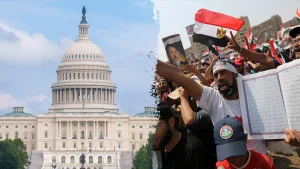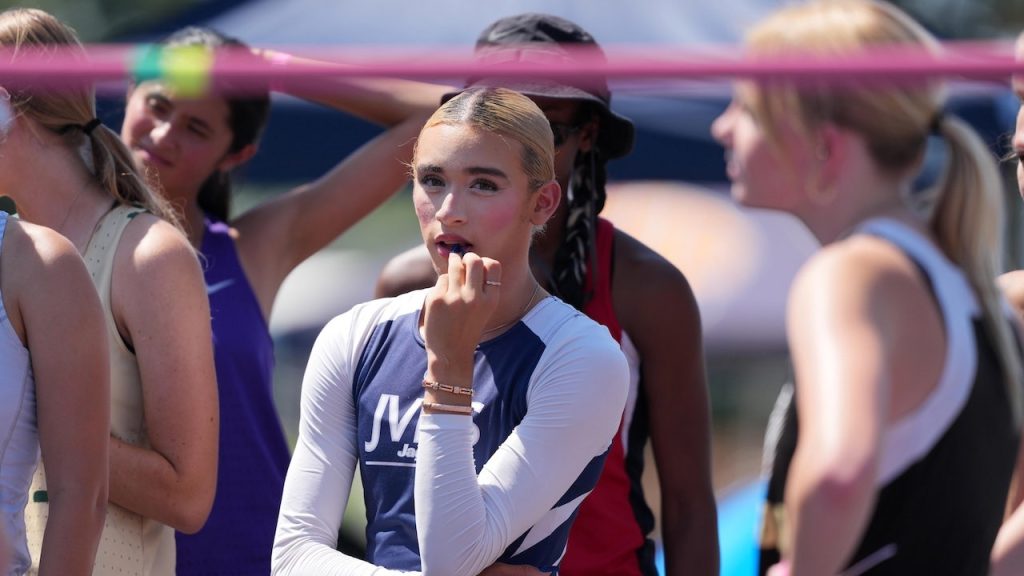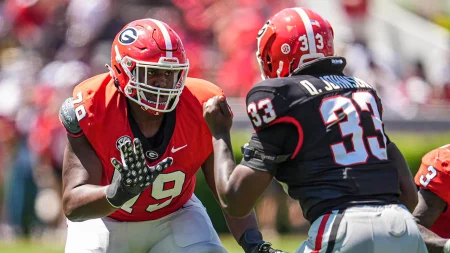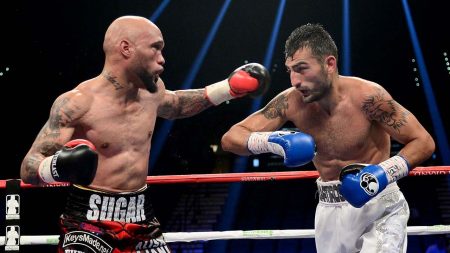High School Volleyball Players Sue Over Transgender Athlete Inclusion
In a significant development that underscores the ongoing national debate over transgender participation in women’s sports, three young women from southern California have filed a lawsuit challenging the inclusion of a transgender athlete on their high school volleyball team. The case, which touches on deeply personal religious beliefs, athletic fairness, and educational policy, represents one of the most direct legal challenges to California’s inclusive transgender athletic policies to date.
The lawsuit, filed Tuesday in the United States District Court for Central California, names the California Interscholastic Federation (CIF), the California Department of Education (CDE), and the Jurupa Unified School District (JUSD) as defendants. Current players Alyssa McPherson and Hadeel Hazameh, along with former player Madison McPherson (Alyssa’s older sister), allege they have experienced discrimination, sexual harassment, and violations of their religious liberties due to competing alongside transgender athlete AB Hernandez at Jurupa Valley High School. Both Alyssa McPherson and Hazameh recently withdrew from their volleyball team in protest, claiming they were subsequently removed from the team group chat after expressing discomfort about sharing court and locker room spaces with someone they identify as male. The plaintiffs, represented by Advocates for Faith & Freedom, are seeking monetary damages and Hernandez’s removal from the team, noting that four schools have already forfeited matches against Jurupa Valley this season amid the controversy.
The lawsuit reveals how deeply religious beliefs inform the plaintiffs’ position. The McPherson family, practicing Catholics, believes “God created human beings as male and female and that gender is a fixed characteristic that cannot be changed,” according to court documents. Similarly, Hazameh and her family, who practice Islam, adhere to religious obligations that prevent her from “exposing her hair or body to males” and emphasize “modesty, dignity, and the honoring of gender distinctions which must conform with one’s biological sex.” These religious convictions have placed the families in direct conflict with California’s policies allowing transgender student-athlete participation based on gender identity rather than biological sex. The plaintiffs claim the school environment has become “intentionally hostile,” with school officials allegedly bullying them to “censor their objections” to competing alongside a transgender athlete.
The controversy surrounding AB Hernandez intensified significantly last spring when the transgender athlete won two girls’ state championships in track and field events, prompting protests from female athletes and their families who often wore “Save Girls Sports” T-shirts. The situation drew national attention, including from then-presidential candidate Donald Trump, who warned California officials against allowing transgender participation in state finals. In response, the CIF amended its policies to reward female athletes who finished behind Hernandez but still permitted the transgender athlete to compete and ultimately win girls’ high jump and triple jump events, while placing second in long jump. The female athletes who finished immediately behind Hernandez shared podium positions alongside the transgender athlete, a compromise that failed to satisfy those opposing transgender inclusion in women’s sports.
The Jurupa Unified School District has responded to the controversy by deflecting responsibility toward state lawmakers, stating that “school districts do not write laws for the state of California, nor do they have the power to ignore them or change them.” The district emphasized its commitment to “upholding the law, which prohibits discrimination on the basis of, among other characteristics, gender, gender identity, gender expression and sexual orientation in any program or activity.” This position reflects the challenging reality faced by school districts caught between state non-discrimination requirements and the concerns of some students and families. Meanwhile, in July, the Department of Justice filed its own lawsuit against the California Department of Education and CIF regarding policies allowing transgender athletes in girls’ sports, creating a complex legal landscape that may ultimately require resolution at higher judicial levels.
Public opinion in California appears to lean against transgender participation in sports categories that don’t match birth sex. A bipartisan survey by the Public Policy Institute of California found that 65% of adults and 64% of likely voters support requiring transgender athletes to compete on teams matching their birth sex rather than their gender identity. Even more striking, 71% of public school parents supported such requirements, suggesting a significant disconnect between state policy and public sentiment. This gap between policy and public opinion reflects the broader national debate about how to balance transgender inclusion with concerns about competitive fairness in women’s sports—a conversation that continues to evolve in legislatures, courtrooms, and school board meetings across the country.
The Jurupa Valley case brings into sharp focus the complex intersection of religious freedom, educational policy, competitive fairness, and transgender rights. While the plaintiffs argue their rights to religious expression and equal athletic opportunity have been violated, supporters of transgender inclusion point to the importance of affirming transgender students’ identities and providing them equal access to educational opportunities, including sports. As this lawsuit progresses through the court system alongside the Department of Justice’s separate action, it may establish important precedents for how schools nationwide navigate these competing interests. Whatever the outcome, the case highlights how deeply personal and consequential these policy decisions are for all students involved, whether they are transgender athletes seeking acceptance and opportunity or cisgender athletes concerned about competitive fairness and religious expression.















